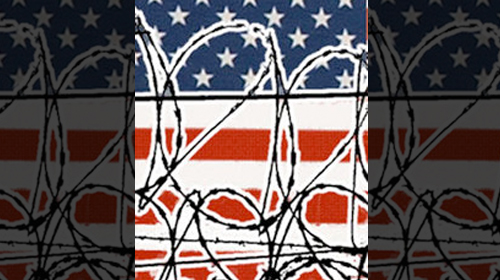
On Friday, the ACLU appeared before the 2nd Circuit Court of Appeals in New York to argue that the Freedom of Information Act (FOIA) requires the CIA to release documents describing its use of waterboarding. The simple question at the heart of the hearing was this: is waterboarding an "intelligence method" that can be protected from disclosure under FOIA? We argued that the answer — of course not — is easy because even the president himself has declared that waterboarding is illegal. Exposing official misconduct to public scrutiny is the chief purpose of FOIA. But it cannot serve that purpose if even officially confirmed illegality is protectable.
The CIA disagreed and offered a truly astonishing view of what our laws on transparency were meant to protect from the public's view. Under its theory, the agency may protect just about any type of activity — legal or illegal — as an "intelligence method," and thus conceal such activities from the public. It does not matter that President Obama has declared waterboarding to be illegal, and it does not matter that the United States has prosecuted waterboarding as a war crime in the past. Even the most egregiously unlawful interrogation techniques could be kept secret as "intelligence methods" of the CIA.
Was the CIA really making this argument? We would soon find out that even the CIA's lawyer seemed uncomfortable with the extraordinary breadth of the claim, resorting to smoke and mirrors to distract the court's focus. Toward the end of the hearing, the three judges and the CIA's lawyer recessed for a 40-minute classified session to discuss the documents we are seeking. When the public hearing resumed, the CIA's lawyer made the mystifying claim that the CIA "does not concede or not concede" that waterboarding is illegal.
We scratched our heads trying to understand what exactly this meant. President Obama declared waterboarding to be illegal shortly after releasing the Bush administration's torture memos in 2009. And the CIA never once disputed the unlawfulness of waterboarding in its filings in this case. The only possibility was that the government was trying to have it both ways. It wants to win this case without having to argue publicly that illegal conduct can be a protectable "intelligence method."
At its core, the CIA's argument is that the agency should be permitted to decide for itself which information should be released, and which should be suppressed. The agency believes that courts should simply defer to its decisions about secrecy. There is a time and place for that kind of deference, of course, but when it comes to public disclosure of the CIA's illegal conduct, the CIA's claim to immunity is fundamentally at odds with our system of checks and balances. Only through public scrutiny of official wrongdoing can the governed hold the government accountable. And only through robust judicial enforcement of our transparency laws will the public have access to the information necessary to do so.
Learn more about torture: Sign up for breaking news alerts, follow us on Twitter, and like us on Facebook.


